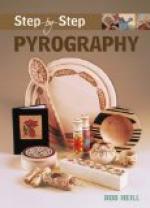Alan always met an emergency coolly. “I did not know the country or the language,” he said, “and I took this way of reaching Goslar in the hope of learning the truth about one Archiater of Byzantium.”
The jester’s high cackling laughter broke in. “Truth from a fool!” he shrilled. “Oh, the wisdom of those who are not fools is past understanding! Why do you rake those ashes?”
“I have read some of his writings,” Alan went on undisturbed, “and if there should be more—anywhere—I would risk much for the sake of them.”
Stefano shook his head mockingly, and the bells mocked with him. “You English are mad after gold. They say here that Archiater sold his soul for his knowledge.”
“That is child’s prattle,” said the young man a little impatiently. “Gold is all very well, but a man’s life is in his work, not his wages. If you can tell me nothing of what I seek, I will not trouble you.”
The fool clasped one knee in his long crooked white fingers. “You have no wife, I take it.”
“I have not thought about it. But that has nothing to do with secrets of the laboratory.”
“Heh-heh! Little you know of women. They have everything to do with a secret. But suppose the manuscrips are worthless?”
“That is not possible,” Alan returned. “The lightest memorandum of such a man has value. It is like a finger-post pointing to treasure. There are writings, then?”
“I said nothing of the sort,” retorted Stefano. “I know all about your search for treasure. Your clerk is digging the hills up this very day for fool’s gold. It has the look of gold—yes—but it is copper and brimstone mixed in Satan’s crucible—fool’s gold and no more. Neither you nor he will get any true gold out of that mine.”
“I tell you,” said Alan in sharp earnest, “that I came here with him for convenience, not for treasure. A friend to whom I owe much desired to know whether the clerk’s story were true or false. For myself I seek only to know what remains of the work of Archiater, because he was a master whose work should not be lost. There must be those—somewhere—who could go on with it,—if we but knew.”
“Aye,” chuckled the jester, “if we but knew!” Then leaning forward he caught Alan by the shoulder. “Listen, you young chaser of dreams—what would you give to see what Archiater left? Eh? Would you guard the secret with your life? Eh? They burned the books in the public square—yes—but if there was something that was not a book, what would you do for a sight of that?”
Alan’s heart was pounding with excitement, but his face was unmoved. “I am not good at fencing, Master Stefano. I have been frank with you because I am assured that you are to be trusted, and I think that you trust me or you would not thus play with me. When you are ready to ask a pledge,—ask it.”
“Well and straightly spoken,” nodded the jester. “If I reveal to you what I know of this philosopher and his work, you shall pledge yourself to betray nothing, to say nothing—not so much as a hint that I knew him— whether I am alive or dead.”




